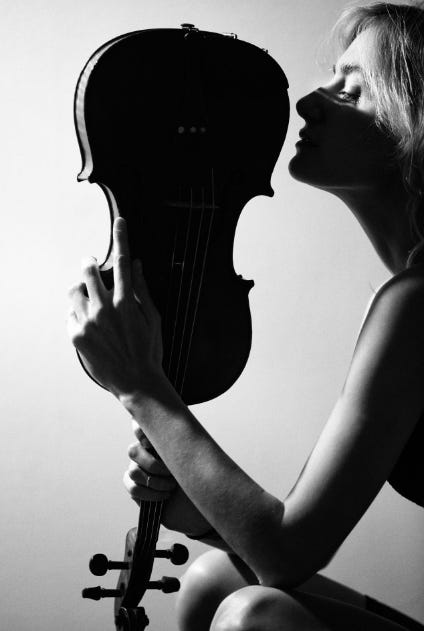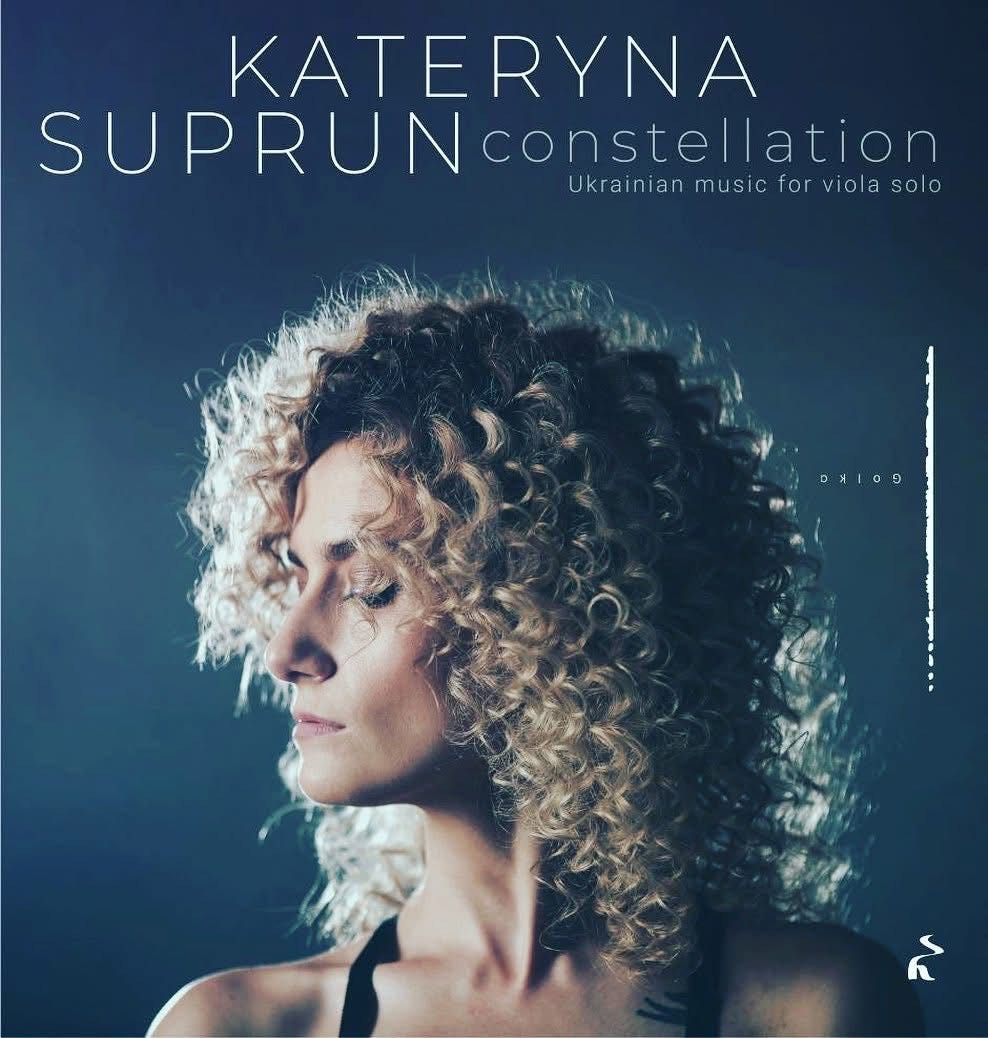BLITZ INTERVIEW: Violist on a mission for Ukraine - Kateryna Suprun.
"February 24 2022 is a wound that will never heal." The violist and artistic director now spends her life touring Europe, drawing attention to Ukrainian classical music repressed by Russia.
(Berlin 2024, photo: Sergiy Horobets)
Where are you from? And where are you now? Doing what?
At the moment, I live between two countries—Germany and Ukraine. At the beginning of the Russian invasion, my family and I moved to Berlin, where they now live in safety. I continue to work between the two countries. In Germany, I develop cultural projects that promote Ukrainian music and musicians on the European stage. At the same time, I remain the co-artistic director and soloist of Kyiv Camerata and continue my work in Ukraine, organizing concerts and cultural initiatives. In the first month after moving, my friends from Germany and I founded an orchestra of Ukrainian musicians called Mriya (“Dream”) where I am the artistic director and soloist. With this orchestra, we have performed on some of Germany’s best stages, such as the Berlin Philharmonic, the Elbphilharmonie, and Die Glocke Bremen. Our big goal is to introduce European audiences to Ukrainian culture. The motto of Mriya is: “Ukrainian Orchestra in Exile.”
(The Mriya ensemble in the Berlin Philharmonie, May 2022)
What kind of studies and work did you do previously? Where?
Before February 24, I lived in Kyiv, where I had been working for the past 15 years as a solo artist in the National Ensemble of Soloists Kyiv Camerata. My projects are musical and related to theater. I have participated in many Ukrainian and international festivals. At the same time, I actively developed my own projects, applied for grants, and in 2017, I was awarded a Presidential Grant, which allowed me to realize the project “Ukrainian Quartet.”
(Carnegie Hall, New York 2024, tour with Kyiv Camerata)
How has the war in Ukraine changed your life? You personally?
The morning of February 24 completely changed my life—my values, my perspective on many things. Like many others, I experienced immense pain and shock from what happened that morning and what continues to this day. The fear for my child’s life and the horror of the unfolding events are forever imprinted in my memory and my heart. This is a wound that will never heal. My world turned upside down. If before February 2022, I understood the value of Ukrainian culture and shared it within Ukraine, after February 2022, it became my mission. To this day, I see it as my duty to do everything I can to engage as many Europeans as possible with our culture and draw attention to our cultural heritage, which Russia has suppressed and destroyed over the past centuries.
(Kateryna’s album - Ukrainian music for viola solo - “Constellation”)
What has surprised you most about Ukrainians these past couple of years? Good or bad?
I am proud of my strong nation! It is an incredible feeling. I remember those first days—February 24 and 25—when men stood in long lines at military enlistment offices to defend their country and their homes, while women and children were being evacuated to the borders. My daughter and I spent four days in line at the border. During all that time, people from nearby villages brought us water, shared food, and helped children with diapers and baby formula. It seems to me that at that moment, the whole world turned its attention to us—to our strength, courage, and resilience.
(London 2024, photo: Sergei Sarakhanov)
What are your future plans?
My plans for the future are clear and well-defined. Over the past three years, I have felt my mission more sharply than ever before. I want Ukrainian music to be performed on the world’s greatest stages. I want our profound and rich music to be played by the world’s top ensembles. This is important, and I will dedicate myself to this work both in Europe and in Ukraine for as long as I can.



(Photo by Alisa Kuznetsova and Kostyantin Mohnych)
How do you see the war ending and Ukraine returning to a ‘normal life’?
You ask about Ukraine returning to normal life? But what is “normal life”? Right now, every Ukrainian’s life is deeply surreal—we take our children to kindergarten to the sound of air raid sirens, we perform concerts while missiles fly toward us, we brew coffee and go to work after a night of bombings. It is hard to say what life will look like when peace finally comes.
(Kateryna Suprun with the Kyiv Camerata, Oleksandr Rodin - Viola Concerto world premiere, October 4, 2024, in the National Philharmonic Hall, Kyiv)
Tell us one thing you don’t think people abroad know about Ukraine – but they really should?
Of course, I want to share information about Ukrainian music: During Soviet times, Ukrainian music endured severe repression. Many composers who sought to incorporate national motifs or drew upon Ukrainian traditions became victims of censorship. Specifically, in 1921, the Soviet Cheka (predecessor of the KGB) killed Mykola Leontovych, the composer of the world-famous “Shchedryk” (“Carol of the Bells”). His music was banned, and the composition remained under prohibition in the USSR due to its Ukrainian origins. The ban on the works of notable composers such as Levkо Revutsky, Vasyl Barvinsky, Stanislav Lyudkevych, and Borys Lyatoshynsky, whose music was often labeled “bourgeois nationalism,” was also part of this repressive policy. Many of their pieces were not performed for decades, and some were erased from cultural memory. These repressions aimed to destroy Ukraine’s musical heritage and impose Russian culture at all levels. Despite centuries of persecution, Ukrainian classical music has preserved its deep roots and continues to be heard on the world’s greatest stages.
The goal of Ukrainians now is clear and obvious. Glory to Ukraine!









Music is the expression of our human longings and the opposite of war. Thank you.
I’m so very appreciative of your stories of amazing women doing what they can to help their country deal with this awful war.